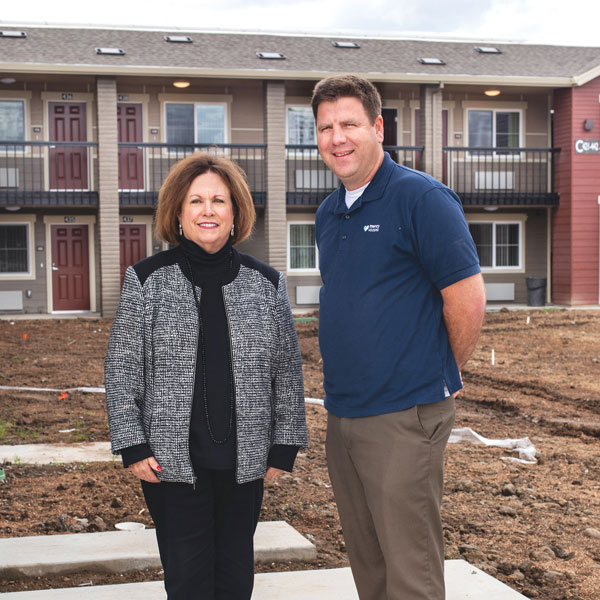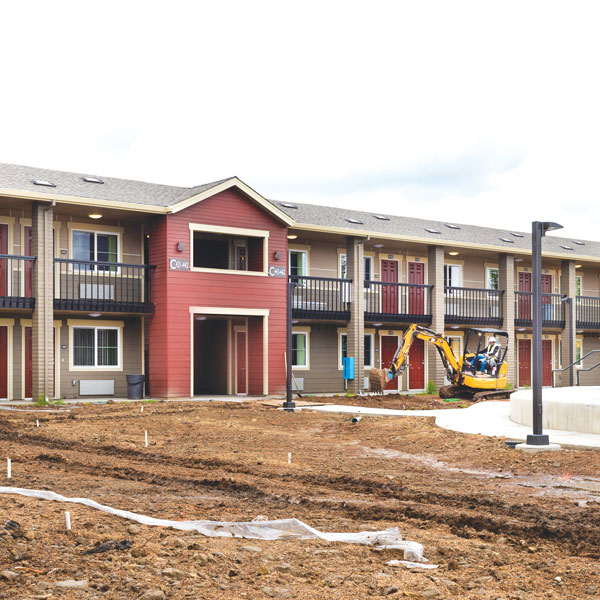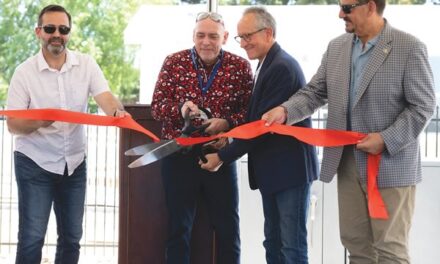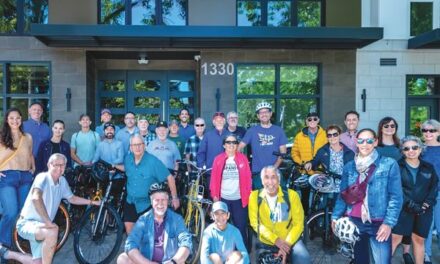The coronavirus crisis has exacerbated Sacramento’s struggle to manage its homeless population, requiring immense capital investment, empathy and unconventional thinking. All three virtues are on display at the new Courtyard Inn nearing completion along the Watt Avenue corridor in North Highlands.
With a projected opening in May, the 92-apartment complex at 3425 Orange Grove Ave. is a rehabilitated motel long been notorious for sheriff calls to deal with prostitution, drugs, theft and violence.

When the hotel was operating, there were so many patrol cars on the premises, the place looked like a sheriff’s substation.
Now, thanks to the tenacity and creativity of retiring County Supervisor Susan Peters, nonprofit Mercy Housing, the Sacramento Housing and Redevelopment Authority and other hard-working public servants, the apartments will provide safe quarters for about 175 of Sacramento’s homeless population of nearly 6,000.
This will barely make a dent in the problem, but if the project succeeds, it could be a template for other communities in dealing with a crisis that has only gotten more serious since the COVID-19 pandemic began.
“It is immensely gratifying,” Peters says. “When we first started on this four or five years ago, there was a lot of arguing about how to deal with the homeless and it was frustrating. I just decided I’m going to do what I know how to do.”
Peters knew how to make something happen. She approached SHRA to see if a nonprofit developer might be interested in purchasing the property. Denver-based Mercy Housing, which has developed other housing in Sacramento, took the plunge.
Mercy first considered tearing everything down and building new apartments. But by turning two hotel rooms into a single unit and some other tweaking, Mercy eliminated many blind spots and the remote back of the motel area that was nearly invisible from the street. It was where most of the criminal activity occurred. Now the space features a dog run.
There were construction-related problems due to a previous fire and asbestos. But when Mercy closed on the property in 2014, the same year county officials reported 517 sheriff’s calls and 101 arrests, the new owners elected to keep what was there and add new structures to provide a more secure orientation.
When it comes to security, the challenge has more to do with outside elements than residents, says Stephan Daues, Mercy’s regional director of housing and development.
“It’s not the residents we worry about,” he notes. “It’s the unwelcome visitors we need to keep out. The resident population are coming here to get a roof over their heads and for help in working their issues out so they can end the cycle of homelessness they’ve been caught up in. It’s incumbent on us to do everything we can to keep this a safe environment for them.”

Located close to Regional Transit bus stops and a light rail station, Courtyard Inn will have on-site medical and drug and mental health services. “Residents will have a place to live and the space and services they need to breathe,” Peters says.
The $32 million project is funded with a combination of SHRA, county and city funding. It will feature fulltime staffing and security, a kitchen and laundry facilities, 1,800-square-foot computer community room, exercise areas, community garden, dog run, pool and 130 parking spaces.
By solving two problems—eliminating an ugly and dangerous community eyesore and providing safe shelter for homeless people—Peters thinks the project can serve as an example for other communities in Sacramento and beyond.
“There is a big supply of these old hotels out there that used to be a problem,” she says. “It wasn’t easy and it took a long time to get all the financing in place, but a lot of these old motels can be transformed to meet some of these community needs.”
Most of the 92 studio and one-bedroom units will be permanent supportive housing, meaning residents will receive monthly housing vouchers to pay the rent. When I toured the property with Peters and Daues, three cars drove in with curious people asking where they could apply to move in.
Construction noise and activity were well received by nearby businesses operators, who worked hard to improve the area through a Property and Business Improvement District. A similar assessment district has had considerable success in Midtown.
After people have been living at the new Courtyard Inn for a year or more, it will be instructive to see how residents and the neighborhood are faring. Here’s hoping the reports are positive so more elected officials, nonprofits and affordable housing advocates will be encouraged to take similar risks.
Gary Delsohn can be reached at gdelsohn@gmail.com. Follow us on Facebook, Twitter and Instagram: @insidesacramento.


















